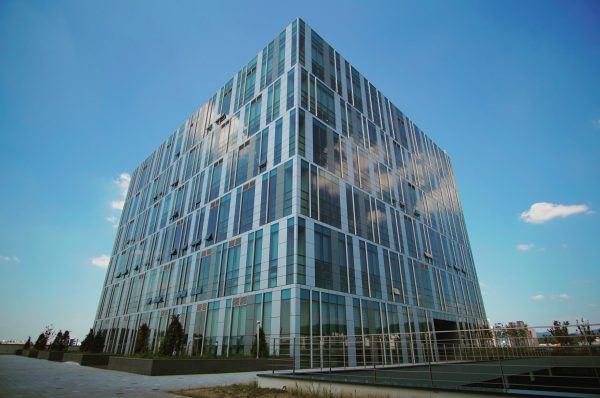Commercial Real Estate:
Long Term Passive Income
 What is something that most millionaires have in common? It is their holding in commercial real estate. A large number of successful individuals maintain large holdings in commercial real estate. Commercial real estate is such a sought after investment mode because commercial real estate provides its owners with an upwards stability even when the stock market is going through a downturn.
What is something that most millionaires have in common? It is their holding in commercial real estate. A large number of successful individuals maintain large holdings in commercial real estate. Commercial real estate is such a sought after investment mode because commercial real estate provides its owners with an upwards stability even when the stock market is going through a downturn.
The reasons why commercial real estate has been such a successful investment are multifold. In this article, we will give out an investment perspective towards commercial real estate.
What Is Commercial Real Estate (CRE) or Commercial Investment Property?
Commercial real estate is used exclusively for business-related purposes, and this specific type of income property is often leased out to tenants to help them conduct income-generating activities. Commercial real estate, or investment property, can be retail warehouses, office buildings, restaurants, storage places, hotels, and hospitals, to name a few.
Commercial real estate provides investors with a steady flow of rental income and also provides the potential for capital appreciation. Investments in commercial real estate require more sophistication and a larger capital from investors than residential real estate.
An affordable way to invest in commercial real estate is via publicly traded real estate investments or REIT.
Why Should You Invest In Commercial Real Estate?
High-Income Potential
Commercial real estate can be a smart place to park your money in; commercial real estate possesses a high-income potential. Almost all commercial properties and holdings attract a higher rent and a higher price tag which also means that there is a higher potential for returns. High-value commercial properties can attract even higher returns than others.
Unlike stock holdings that don’t often pay out regular dividends, commercial real estate can dish out regular cash payments. This is a beneficial trait, and it also allows the investor to stay relatively calmer during periods of recession.
Commercial real estate income can be availed either through the sale of the asset or through the cash flow. With commercial real estate, you don’t necessarily need to make sales and actively monitor the property performance to make a profit. There is a regular rental revenue stream of income coming in all the time.
Tax Benefits
Owning property comes with multiple tax benefits. If you own a commercial piece of land, you can record a depreciation expense each year under the building. This allows you to deduct a portion of your property value from your taxable income each year. For many high-profile individuals, this reduces their tax burden significantly.
If you have purchased a well-located property, the value of the property goes up with time. You can offset the increase in taxable income due to the property’s capital appreciation by recording depreciation on an annual basis in your books. So instead of appreciating the property value because of capital gain, you end up.
Tangible Asset
For many people, real estate is a valuable asset because of its tangible nature. You can visit a property yourself, and you can also learn about its size, location, and factors that affect its earnings. Some people prefer having something in their hands to having virtual assets. However, unoccupied properties can end up costing an investor money over time. Real estate investment is also a lot more illiquid than other investments; therefore, this kind of investment is only suitable for investors that are interested in it for the long run.
Relaxed Maintenance
With commercial real estate, all maintenance and upkeep costs are rarely completely on you. Many tenants operate on the triple-up leases formula, which places most property-related expenses on the tenants’ shoulders. These expenses can be taxes, insurance, maintenance, and even utilities.
Most tenants occupying corporate space are typically more concerned with the property’s upkeep. Since they are involved in marketing their business, they will be more involved and dedicated to keeping the building in good repair. Some tenants might introduce improvements to the place, which can end up increasing the property value over time.
Another benefit of commercial real estate is that most contracts are extended periods, typically extending a year. Most commercial tenants sign at least a three-year agreement, which means that you often don’t constantly hunt for new occupants.
Types Of Commercial Real Estate Loans
 Like home mortgages, banks and independent lenders are actively involved in making loans on commercial real estate. Most commercial real estate loans are usually made available to business entities and range from 5 to 20 years. Below we’re going to talk about some of the loans being offered.
Like home mortgages, banks and independent lenders are actively involved in making loans on commercial real estate. Most commercial real estate loans are usually made available to business entities and range from 5 to 20 years. Below we’re going to talk about some of the loans being offered.
Conventional Commercial Loan
As the name implies, these kinds of loans function on time old fixed-rate mortgages system. These loans are very similar to the loans you would get when purchasing a single-unit residential home, but they will have shorter terms.
The minimum amount of down payment required is 25% for a fixed-rate mortgage ranging from 5 to 30 years. Commercial loans generally have a duration of five to ten years, and lenders will order an appraisal to confirm the property’s value.
The SBA 7(A) Loan
The SBA 7(a) loan is a loaning mechanism created by the small business association to help get money into the hands of small business owners. Contrary to popular belief, the SBA loan isn’t directly a loan from the SBA. Rather the SBA is a mechanism that helps lenders secure a loan by guaranteeing a portion of the amount being borrowed, capping interest rates, and limiting fees.
When you apply for an SBA loan, you work directly with a lender, and the SBA also guarantees a portion of the loan amount. The 7(a) loan isn’t simply a singular loan; rather, it is more of an umbrella term, and there are many different types of SBA 7(a) loans. To qualify for an SBA loan, the owner must put down at least 10% of the purchase price.
SBA 504 Loans
SBA 504 loans are very similar to the 7(a) loans except that the SBA does not have a maximum loan amount. The loans can be used for up to 90% of the purchase price of commercial real estate, regardless of the deal size.
The tenure of an SBA 504 extends for 20 years; loan terms are typically 20 years when used to purchase commercial real estate. The interest rates for an SBA 504 loan are between 3.5 and 5%.
Conduit Loans
Conduit loans are an old loaning mechanism. The best way to describe this kind of loan would be to call it a commercial mortgage packed into a pool with other similar types of commercial loans; from there, these loans are securitized and sold in the secondary market to institutional investors.
Conduit loans are structured as commercial fixed-rate real estate loans, which often provide lower fixed rates than commercial real estate loans.
Commercial Bridge Loans
Like the name, commercial bridge loans are temporary short-term fixes until the borrower can secure long-term funding. The loan aims to bridge the gap in cash flow between the time a business applies for funding to the time when funds are disbursed.
Commercial bridge loans are often used to secure real estate quickly. If the owner finds a great deal on the building, he can quickly get short-term commercial bridge funding to purchase the loan and look for a low-interest rate loan afterward.
Bridge loans can also be used to fund balloon payments immediately. However, bridge loans are not a viable long-term solution as the interest rates are very high.
Hard Money Loans
Hard money loans are loans that do not come from traditional lending channels, and individuals or companies often provide them.
Hard money loans are secured using commercial real estate as collateral, and they are a source of short-term capital. These loans have lower underwriting standards but have quick turnaround times. Hard money lenders focus more on the value and equity of a property rather than the borrower’s creditworthiness.
Soft Money Loans
A soft money loan is a loan that comes with favorable terms and also a low rate of interest. Soft loans have lenient terms like extended grace periods and below-market rates of interest, and they are offered to support developing nations.
There are also numerous other commercial real estate loans that businesses can avail. Slack Capital offers its customers a wide range of loan options to choose from. With Slack Capital, you don’t have to worry about securing finances for your business, and you can free up your capital for investments and growth opportunities. Slack Capital works alongside you and offers you flexible terms that you can use for your particular business investment.
We use cutting-edge technology and pair it up with customer focus to create solutions for you that can be sustainable in the long run. We have been in this business for a long time; therefore, we possess top-tier knowledge to help your business succeed. No matter what kind of business you own, we will have a solution to your requirements.
